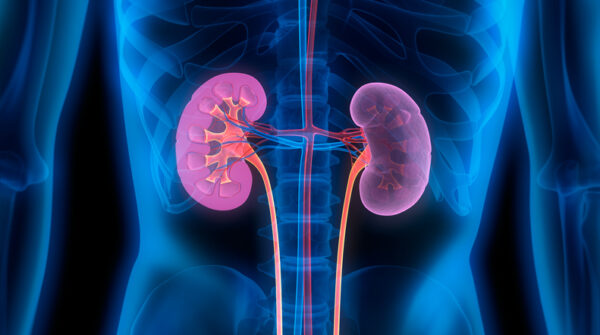
Novartis’s $3.2 billion acquisition of Chinook Therapeutics brought two drug prospects for a chronic kidney disorder with few approved treatments. One of these newly acquired drugs has now met the main goal of its Phase 3 test, results the Swiss pharmaceutical company said will support plans to seek accelerated FDA approval in 2024.
The drug candidate, atrasentan, is in development as a treatment for immunoglobulin A nephropathy (IgAN). The rare disease leads to buildup in the kidneys of an abnormal form of the immunoglobulin A protein, leading to worsening organ function that can culminate in kidney failure. Novartis said Monday that after 36 weeks of treatment, the preliminary Phase 3 results showed the once-daily pill reduced proteinuria, the high levels of certain proteins in urine that are indicators of kidney disease.

With the Rise of AI, What IP Disputes in Healthcare Are Likely to Emerge?
Munck Wilson Mandala Partner Greg Howison shared his perspective on some of the legal ramifications around AI, IP, connected devices and the data they generate, in response to emailed questions.
Novartis did not disclose more specifics about the level of proteinuria reduction observed in the interim analysis. But showing reduction in these proteins at 36 weeks is the same benchmark used to support accelerated FDA approval of the two drugs that have passed FDA muster in IgAN. Calliditas Therapeutics’ Tarpeyo was the first, winning its FDA nod in late 2021. The drug is a corticosteroid that treats the rare kidney disease by suppressing immune system responses. The second IgAN drug comes from Travere Therapeutics, which won approval early this year for Filspari. This small molecule blocks two pathways associated with the progression of kidney disorders, including IgAN.
Atrasentan is a small molecule designed to block endothelin A, a receptor that drives inflammation and fibrosis in kidney disorders. Chinook Therapeutics licensed the compound from AbbVie and advanced it into pivotal testing. This study enrolled about 340 patients whose IgAN was confirmed by a biopsy. Participants were randomly assigned to receive the study drug, formulated as a once-daily pill, or a placebo, for 132 weeks. With the proteinuria reduction goal met, the study will continue in order to assess secondary goals that include changes in estimated glomerular filtration rate (eGFR), a measure in the change in kidney function over time. Novartis said preliminary results from this analysis are expected in the first quarter of 2026.
Chinook’s other IgAN therapeutic contender was zigakibart, an antibody drug that was initially developed by Aduro Biotech. This drug targets and blocks a proliferation-inducing ligand (APRIL), a protein associated with the progression of some autoimmune disorders. Chinook retained zigakibart following the reverse merger with Aduro that gave the biotech its public listing. Now in the hands of Novartis, zigakibart is currently in Phase 3 testing.
When Novartis announced the $3.2 billion acquisition agreement for Chinook in May, the pharma giant already had its own IgAN drug candidate called iptacopan. This internally discovered and developed small molecule is designed to block factor B, a complement system protein that is associated with IgAN progression. In early October, Novartis reported topline results showing iptacopan met its Phase 3 goal in IgAN, setting up plans for an FDA submission expected next year.
In a prepared statement, Shreeram Aradhye, Novartis President, Development and Chief Medical Officer, said the company’s portfolio now has three different late-stage therapies with the potential to provide new treatment options for patients who have IgAN. Alternatives to the Calliditas and Travere drugs may be needed. As an immunosuppressant, the Calliditas drug introduces risks such as a higher susceptibility to infection. Meanwhile, the future of Travere’s drug is less certain after the company reported in September that it failed to achieve the main goal of the confirmatory study required of its accelerated approval.
The list of potential IgAN therapies is growing as new startups enter the field. But some biotechs are dropping out of the chase. Two weeks ago, Omeros announced it will discontinue development of its IgAN drug candidate after the molecule failed to achieve the proteinuria reduction goal of its Phase 3 test.
Photo: peterschreiber.media, Getty Images














